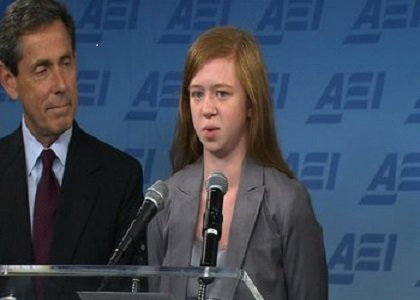WASHINGTON (CNN) — The Supreme Court sidestepped a sweeping decision on the use of race-conscious school admission policies, ruling Monday on the criteria at the University of Texas and whether it violates the equal protection rights of some white applicants.
The justices threw the case back to the lower courts for further review.
The court affirmed the use of race in the admissions process, but makes it harder for institutions to use such policies to achieve diversity.
The 7-1 decision avoids the larger constitutional issues.
Abigail Noel Fisher individually sued the flagship state university after her college application was rejected in 2008 when she was a high school senior in Sugar Land, Texas.
She claims it was because she is white, and that she was being treated differently than some less-qualified minority students who were accepted.
The decision comes as the justices work toward wrapping up a busy term.
Among the big issues yet to be resolved: federal enforcement of the Voting Rights Act and the politically blockbuster constitutionality of same-sex marriage.
The justices plan to meet again on Tuesday to issue additional opinions.
In the Texas case, the school defends its policy of considering race as one of many factors, such as test scores, community service, leadership, and work experience, designed to create a diverse campus.
In ruling narrowly, the court reaffirmed earlier rulings allowing for a limited use of race-conscious public policies.
“The attainment of a diverse student body serves values beyond race alone, including enhanced classroom dialogue and the lessening of racial isolation and stereotypes,” wrote Justice Anthony Kennedy in the court’s ruling.
But Kennedy said that such admissions programs must withstand close review.
Kennedy said the “university must prove that the means chosen” to attain diversity “are narrowly tailored to that goal,” adding that the highest level of legal standard must be met before institutions use diversity programs.
“Strict scrutiny [of the policy] imposes on the university the ultimate burden of demonstrating, before turning to racial classification, that available, workable race-neutral alternatives do not suffice,” he said.
The Supreme Court in recent decades has established a three-pronged test to balance the government’s interest against a constitutional right or principle, and decide which laws may go too far. These standards of review are rational basis scrutiny, heightened scrutiny, and strict scrutiny.
The appropriate standard, said Kennedy was not applied properly by the lower federal courts in the Fisher case.
Justices Stephen Breyer and Sonia Sotomayor, who are more left-leaning, agreed with the court’s five conservatives.
Justices Antonin Scalia and Clarence Thomas also agreed with the limited reach of the ruling, but separately suggested continuing use of diversity programs in the classroom were unconstitutional.
The high court will get another crack at the issue this fall in a separate appeal.
The justices will decide the constitutionality of a voter referendum in Michigan banning race- and sex-based discrimination or preferential treatment in public university admission decisions. Oral arguments are likely in October.
The case is Fisher v. University of Texas at Austin (11-345).
The-CNN-Wire/Atlanta/+1-404-827-WIRE(9473)
™ & © 2013 Cable News Network, Inc., a Time Warner Company. All rights reserved
